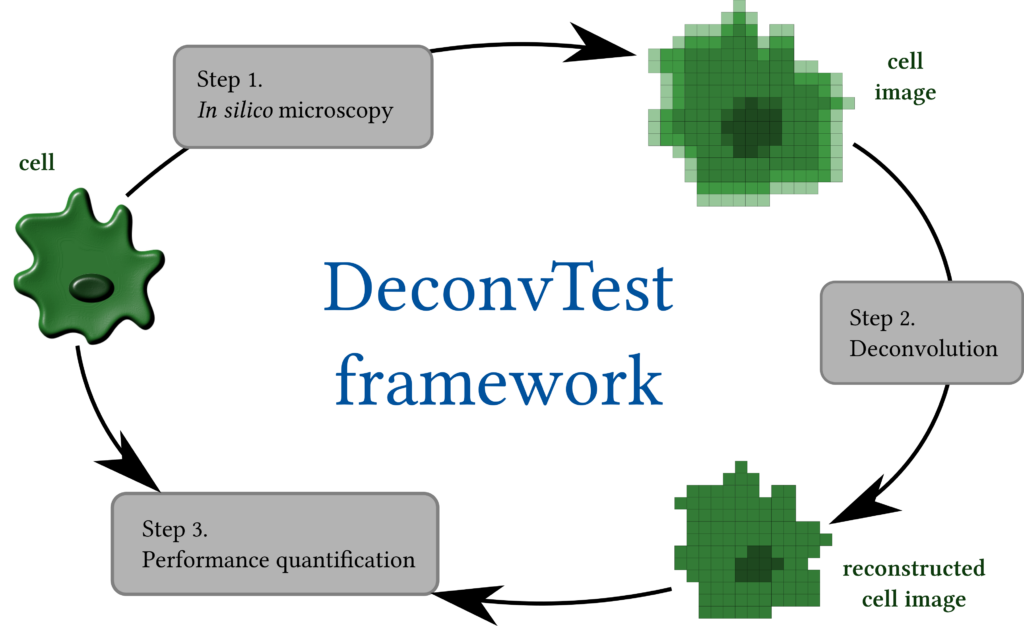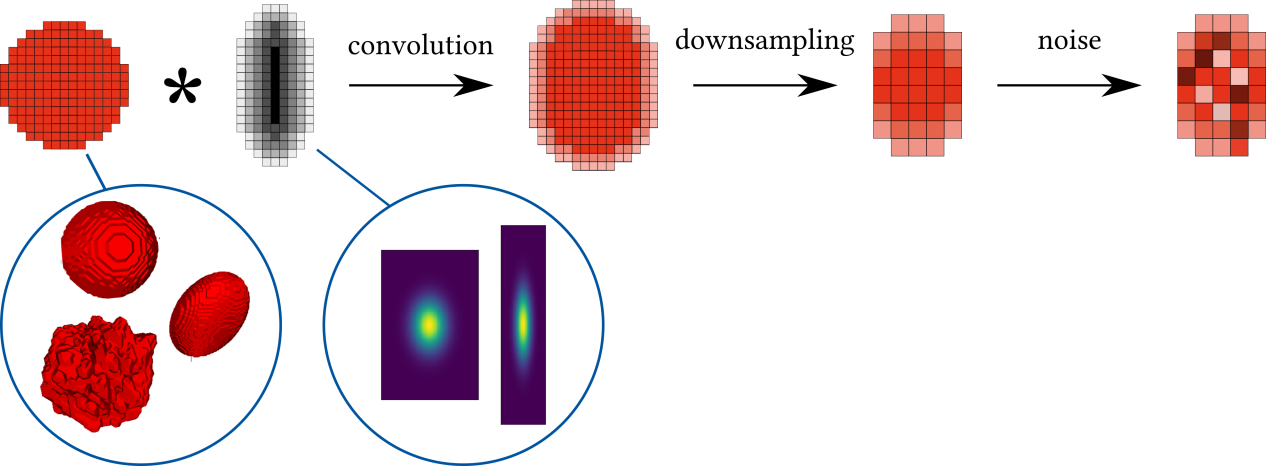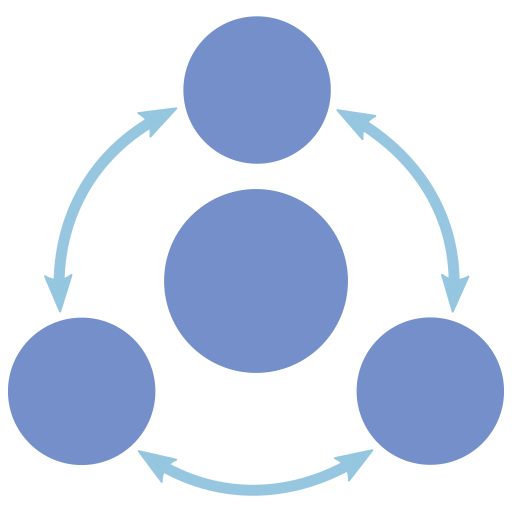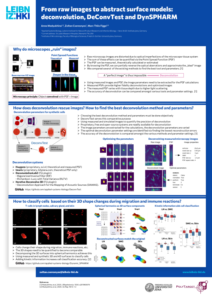
DeconvTest is a Python-based simulation framework that allows the user to quantify and compare the performance of different deconvolution methods. The framework integrates all components needed for such quantitative comparison and consists of three main modules: (1) in silico microscopy, (2) deconvolution, and (3) performance quantification. Deconvolution itslelf is an essential step of image processing that aims to compensate for the image blur caused by the microscope’s point spread function. With many existing deconvolution methods, it is challenging to choose the method and its parameters most appropriate for particular image data at hand. To facilitate this task, we developed DeconvTest.
Simulation of microscopy experiments
Microscopic imaging of a sample involves illuminating the sample with a light source, collecting the emitted light, and discretizing the signal by recoding it in a detector, such as a CCD camera. This process can be represented as a continuous convolution of the sample with a point spread function (PSF) – the image of a point source – and subsequent discretization. Convolution of complex continuous signals is non-trivial to compute. Hence, when simulating this process on a computer, we represent the continuous convolution process by a convolution of discrete signals of high resolution (very small voxel size), while the process of discretization is simulated by the subsequent downsampling (decrease of the resolution).

Simulation workflow
To simulate the whole microscopy process, we need to model the following steps and components:
- Images of cells
- PSF of the imaging system
- Convolution and downsampling
- Noise
In contrast to existing software, DeconvTest combines all components required to analyze deconvolution performance in a systematic, high-throughput and quantitative manner. We demonstrate the power of the framework by using it to identify the optimal deconvolution settings for synthetic and real image data.

